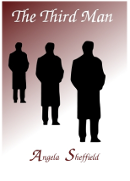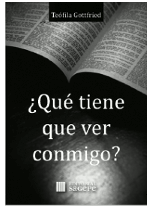Truth really can be stranger than fiction.
First Page - Now launched! All the stories are true, or based on real events. Unlimited reading for $4.99 / month. No downloads. Read on your phone, tablet or computer.
La verdad puede ser más extraña que la ficción.
First Page - ¡Ya está en marcha! Todas las historias son verídicas, o están basadas en hechos reales. Lectura ilimitada por $4.99 / mes. No hay que descargar nada. Lea en su teléfono, tableta u ordenador.
Manna Minutes Podcast: Eye-opening Bible study in less than five minutes! Access all episodes here.
Manna Minutes en español:
Estudio bíblico que nos hace abrir los ojos en menos de cinco minutos! Acceda a todos los episodios aquí.
Manna Minutes Podcast auf Deutsch:
Augenöffnendes Bibelstudium in weniger als fünf Minuten! Alle Episoden finden Sie hier.
Was There A Curse On Helen's Romantic Life?
The Third Man by Angela Sheffield is based on a true story. Read chapter one now!
View Content By Specific Category
¿Qué tiene que ver conmigo? por Teófila Gottfried
Lo que leemos en la Biblia tiene que ver con todos los seres humanos, sean cristianos o judíos, ateos o agnósticos, budistas, musulmanes o adherentes a alguna de las filosofías o nuevas religiones que surgen en el mundo. ¿Por qué? Ver mayor información sobre este interesante libro.
Scripture of The Day - St. John 14:6
Jesus saith unto him, I am the way, the truth, and the life: no man cometh unto the Father, but by me.
Escritura del día - San Juan 14,6
Jesús le dijo: Yo soy el camino, y la verdad, y la vida; nadie viene al Padre, sino por mí.
Bibelstelle des Tages - Johannes 14,6
Jesus spricht zu ihm: Ich bin der Weg und die Wahrheit und das Leben; niemand kommt zum Vater, denn durch mich!
Did Ancient Egypt Really Believe in an Afterlife? Should Modern Man Believe in Life after Death?

Howard Carter's discovery of the tomb of king Tutankhamun, a young pharoah who ruled ancient Egypt about 3,300 years ago, is among the most compelling evidence that the ancient Egyptians were among those who firmly believed in an afterlife. This was the belief at least for their pharaohs whom they considered gods. The meticulous care with which they preserved their kings' bodies through mummification and their inclusion of food and other provisions in their tombs to serve them in life after death speaks of their undeniable belief in the existence of an afterlife. It's almost incredible to think of an awesome structure such as the pyramid of Giza, one of the seven wonders of the ancient world, as a tomb for one man. However, are there any signs or evidence that the people of ancient Egypt had doubts about the existence of an afterlife for themselves or their pharaohs?
Some people would definitely say that they did. First, archaeologists have discovered that most of the tombs of the pharaohs of ancient Egypt were robbed of their many items of great value, items of pure gold and ivory. These robberies were committed despite the warnings of ancient curses that were cast to protect the burial chambers. What man, woman or child who truly believed that the pharaohs were gods who needed all of their provisions in their afterlife would dare rob them? This would be robbing god. Perhaps it dawned on them that a true god could keep himself from being robbed. Consequently, perhaps they saw it more sensible to attend to the needs of their own life. It might even be that they noticed that the mummies, although preserved to be active in the afterlife, never rose up from the coffins in which they had been placed, never made use of their personal belongings buried with them, nor ate any of the food provided for them for life after death.
Ancient Sources on the Afterlife
The Egyptian book of the dead, the Tibetan book of the dead, the Christian Holy Bible, the Koran, and other writings considered sacred are among the sources of information on the subject of life after death to which most modern men have access. Are any of them reliable? Who can really say what will be in the afterlife; near death experiences are not permanent death, so many people dismiss them. While it might be confusing to sort out what WILL be in life after death by reviewing these sources, it isn't difficult to sort out what will NOT be in the afterlife.
The world has tangible proof that the bodies of mortals, no matter how well they're mummified or how strongly it's believed that they're a god, do not get up unless they do so by direct divine intervention which is nothing short of a miracle. They don't and can't make use of the belongings they enjoyed in life. They don't eat or drink nor are they able to protect their corpses or tombs from being robbed.
The biblical scripture of I Timothy 6:7 teaches, "For we brought nothing into this world and it is certain we can carry nothing out." But, what about those in ancient Egypt who never heard the word of the living God? Would they have believed any differently had they heard? Undoubtedly, some would have and others would not have accepted this truth. But, again, the work of archaeologists have found physical evidence of this biblical truth--there's no sign of life after death in the tombs.
Alexander the Great Spoke About the Afterlife
Alexander the Great was one of the ancients who, according to the Discovery Channel premiere presentation of, "The Seven Wonders Of The Ancient World", said, "When I die, leave my hands outside of the coffin. These hands have conquered all, but they will leave the world empty." There's no historical record that indicates that Alexander had any familiarity with the word of the God of Israel, the Spirit behind the Bible which also clearly speaks against belief in reincarnation. However, he did not deceive himself into thinking that he would go on living in an afterlife just as he had lived on Earth although he thought of himself as a demi-god having been told by his mother that Zeus, the supreme Greek god, was his real father. So, does the Bible say that there's no such thing as an afterlife? No, it doesn't; however, its teachings on the falsehood of reincarnation, false teachings about life after death, and divinity are very different from those of other ancient sources.
 Based on true events, The Third Man by Angela Sheffield, brings the Bible up close and personal as the characters face real issues of life: Betrayal, deceit, romance, bitterness, anger against God, hopelessness, will power, perplexity, triumph, unforgiveness, mental illness, and the "Alcohol made me do it" excuse. Read chapter one FREE now.
Based on true events, The Third Man by Angela Sheffield, brings the Bible up close and personal as the characters face real issues of life: Betrayal, deceit, romance, bitterness, anger against God, hopelessness, will power, perplexity, triumph, unforgiveness, mental illness, and the "Alcohol made me do it" excuse. Read chapter one FREE now.
Copyright notice: This website and its content is copyright of © Heavenly Manna (HeavenlyManna.net) 2002-2025.
Comments/Comentarios:
Send Comments or a Private Message about One of Our Services / Envíe Comentarios o un Mensaje Privado acerca de nuestros servicios
Once comments reach 10, they close. IF YOU USE PROFANITY, WE WILL REJECT YOUR COMMENT AUTOMATICALLY.
We're a small team, please be patient as we review comments.
©2003 - 2013 Heavenly Manna Ministries
Images: courtesy of Free Digital Photos, openstockphotography.org, FreeFoto.com, Wikimedia Commons. Multiple crosses image - Wikimedia Commons - C.G.P Grey - Animation by Heavenly Manna










